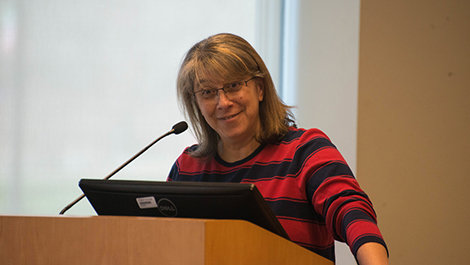
We realized this is a really important need. We’re trying to help schools cope with the reopening in the fall and how incredibly complicated it’s likely to be.
When students return to classrooms after COVID-19 closures, they will need support stretching far beyond solving equations and understanding Shakespeare.
Children’s social and emotional well-being must also be at the forefront of educators’ minds.
“It can’t be a side issue,” said Bridgewater State University psychology Professor Elizabeth Englander, whose new book, When the Kids Come Back, focuses on that topic.
The book offers checklists for K-12 teachers, school counselors, administrators, and even parents to follow before and after in-person classes resume.
Dr. Englander, who directs the Massachusetts Aggression Reduction Center, decided to write the book after the center’s recent webinar on returning to school reached its capacity of approximately 500 participants within 48 hours.
“We realized this is a really important need,” she said. “We’re trying to help schools cope with the reopening in the fall and how incredibly complicated it’s likely to be.”
Englander drew from emerging research about children during the pandemic and studies about students returning to school after long absences caused by natural disasters such as hurricanes.
“When students go through these situations, some want to talk about what’s happened, but other kids show extreme anxiety about talking about it,” she said.
Educators should provide outlets for students to share their feelings while not traumatizing those facing anxiety. Journaling is one method, Englander said.
Students may also struggle academically, particularly if they were unable to complete remote learning.
And, “their socializing is going to be really affected because they’ve been isolated and engaging only on screens and social media,” she said.
The book is geared to K-12 schools, but also offers lessons for higher education. And, if schools do not reopen buildings in the fall, the information remains relevant when students eventually do return.
“The issues are not going to change,” she said. “The longer they stay out of school, the more pronounced they are. … It’s a very daunting task.”
Do you have a BSU story you'd like to share? Email stories@bridgew.edu.
